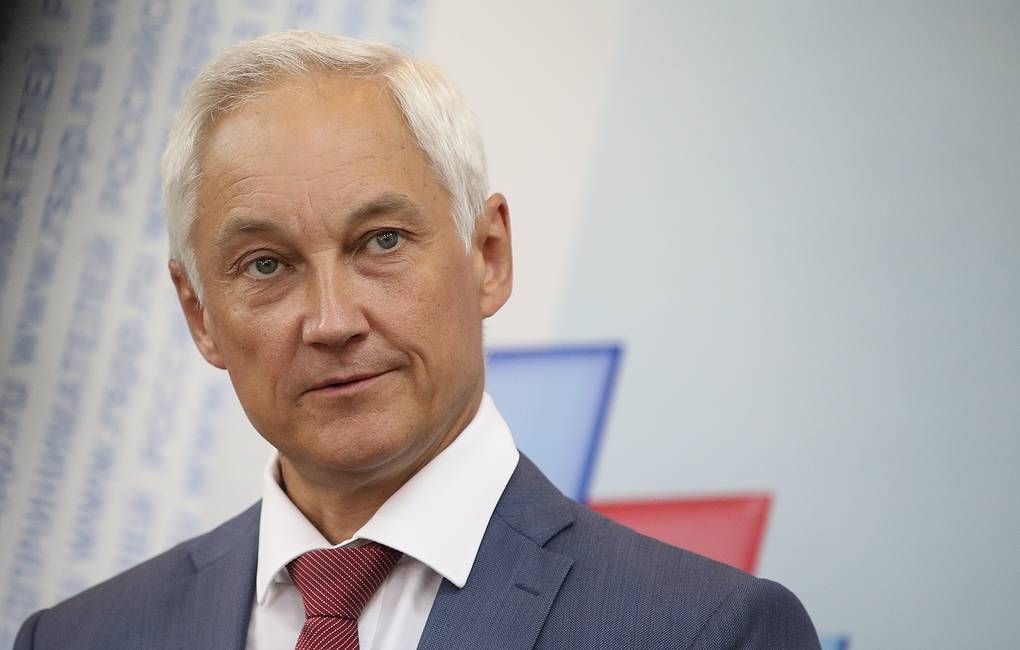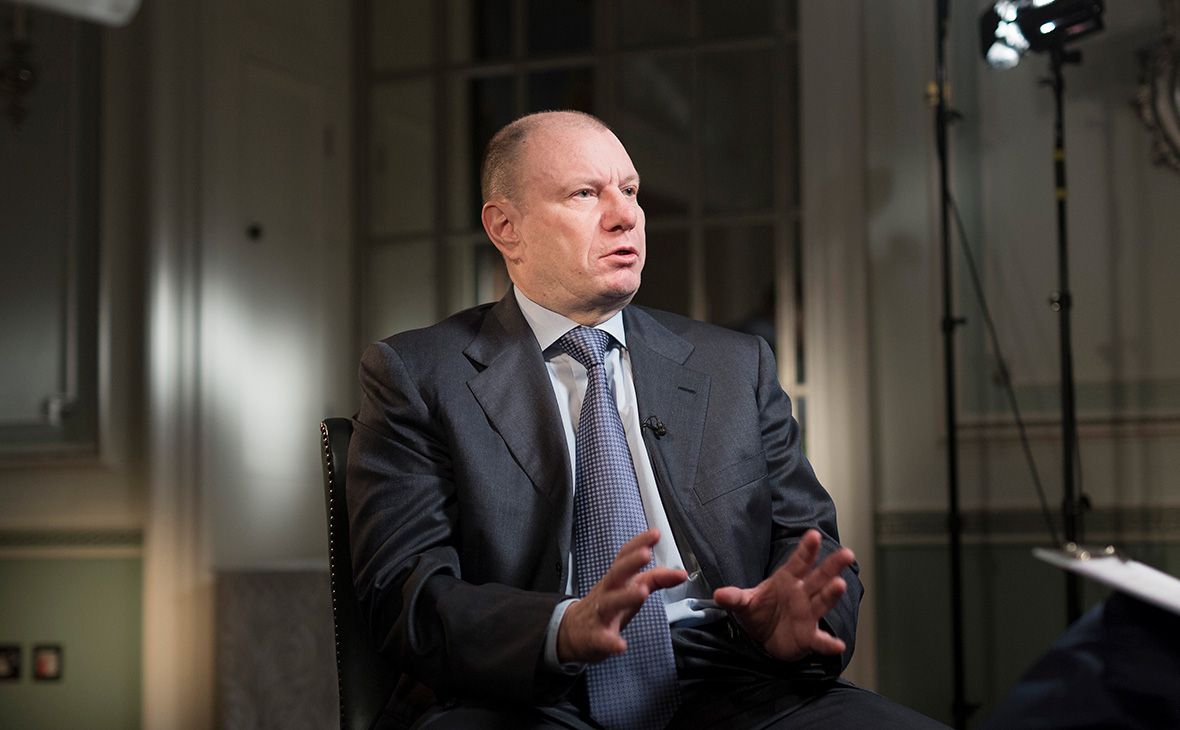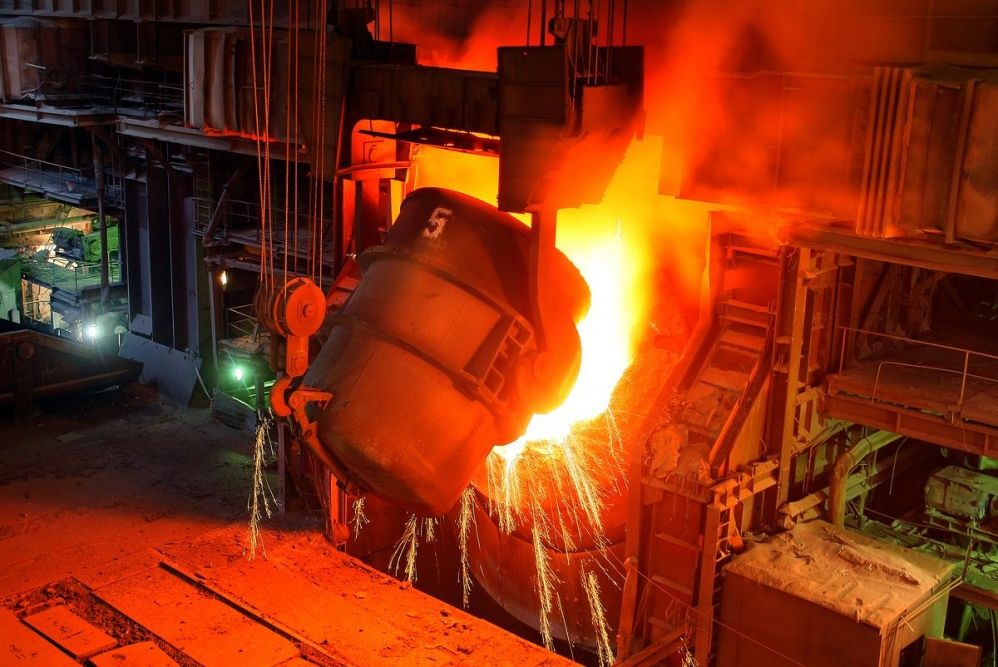Behind the ongoing increase in metal prices on the Russian market may be the metallurgists themselves, who should learn from Alisher Usmanov.
The Federal Antimonopoly Service of Russia suspected cartel collusion in the reinforcement market. Claims may be made to the NLMK group of Vladimir Lisin, Newtal-M Ivan Demchenko, as well as the companies Tulachermet-Steel and PMH Management Company, which are part of the Industrial and Metallurgical Holding (PMH) Boris Zubitsky and his relatives told Interfax.
The correspondent of The Moscow Post understood the causes of the conflict between the FAS and metallurgists.
The FAS explained that signs of price collusion were revealed, which could lead to an increase in prices for construction fittings. Since the summer of 2020, they have so soared by 50%. This situation is superimposed on the absentee confrontation between Russian metallurgists and the authorities.
It entered the public plane in May 2021, when the First Deputy Prime Minister of the Government of the Russian Federation Andrei Belousov said that metallurgists "hit" the budget. We are talking about the state spent about 100 billion rubles, which went to state investments and state defense orders for the country's metallurgical enterprises.
It turned out that against the background of the pandemic in 2020, Russian metallurgists did not just "sit down," but increased revenues several times, including due to higher prices in the domestic market. Belousov believes that metallurgists should return this 100 money to the budget.
The FAS explained that signs of price collusion were revealed, which could lead to an increase in prices for construction fittings. Since the summer of 2020, they have so soared by 50%. This situation is superimposed on the absentee confrontation between Russian metallurgists and the authorities.
It entered the public plane in May 2021, when the First Deputy Prime Minister of the Government of the Russian Federation Andrei Belousov said that metallurgists "hit" the budget. We are talking about the state spent about 100 billion rubles, which went to state investments and state defense orders for the country's metallurgical enterprises.
It turned out that against the background of the pandemic in 2020, Russian metallurgists did not just "sit down," but increased revenues several times, including due to higher prices in the domestic market. Belousov believes that metallurgists should return this 100 money to the budget.
The absentee answer to Belousov, although not directly, came from the main shareholder of NLMK and the president of the association of ferrous metallurgy enterprises "Russian Steel" Vladimir Lisin. His words are quoted by RBC. Lisin announced his intention to propose to Russian Prime Minister Mikhail Mishustin "to stop the discussion of ill-conceived initiatives to introduce price control through tariff restrictions on the export of metal products and raw materials."
Then he had in mind the besieged export duties on black and non-ferrous metals. They should help contain rising prices for metal products in the domestic market. Despite the pressure of industrialists, the Government introduced duties, they are valid from August 1 to December 31, 2021.
The funds received, and it is expected that this will be about 160 billion rubles, the authorities will send to compensate for losses from rising prices for metal products, including in the state defense order. According to Belousov, even this amount is only a small part, about 20-25% of the super-profits that Russian metallurgists have due to rising metal prices.

Andrei Belousov, who planned to return about 160 billion rubles to the budget, faced fierce resistance from the metallurgical lobby
Lisin expressed the opinion that the introduction of duties would not lead to a correction of prices in the domestic market, but, on the contrary, could lead to a deficit and a new rise in price. However, in the light of the claims of the FAS, it may turn out that the industrialists themselves are behind the price increase, who are chasing super profits. The introduction of duties, of course, is not at all beneficial to them.
However, they were still flowers. After that, a collective "tantrum" began
Collective hysteria
Members of the Russian Steel association, led by Vladimir Lisin, are EvrazHolding, NLMK, MMK, Mechel, Severstal and others. If price collusion is indeed confirmed by the industrialists mentioned at first, it will be difficult to believe that other members of the organization have refrained from temptation.
Many of the key beneficiaries of these enterprises could obtain former state property on questionable grounds. In the 90s, they were privatized literally for nothing, raiding and corporate bribery flourished.
There are questions, for example, to the key beneficiary of the Magnitogorsk Metallurgical Plant Viktor Rashnikov. They say that during privatization, he could banally bathe shares from his colleagues in the plant, taking advantage of their illiteracy and lack of understanding of the benefits that can be gained from owning securities in the future.
There were those who did not part with the packages, but then could not receive the dividends due to themselves. Now, most of the company's shares are offshore, which itself clearly does not go to the plus of the Russian economy.
Today, MMK became one of the first metallurgical giants to reduce product prices after the introduction of duties on August 1. This could threaten the entire market with problems. That is, it seems that a bet is made on dumping so that products are better sold inside Russia.
At the same time, in 2020, the plant earned 52 billion rubles of net profit with revenue of 400 billion rubles. Recently, Rashnikov even decided to part with 3% of his package when placed as part of the SPO. In this case, he will be able to raise about 23 billion rubles, and his share will decrease to 81.6%.
After the introduction of duties, another major player, the owner of Eurasia Oleg Deripaska, began a dive with the Government. He said that due to the introduction of duties, Russian metallurgists allegedly lost $50 billion. Moreover, he referred not to reliable facts and statistics, but to publications in the Western press. And not about Russia, but about China.
It, in turn, told what losses the Chinese economy suffered as a result of the introduction of new laws to regulate the market. True, the comparison looks, to put it mildly, incorrect and attracted to the ears.
Oleg Deripaska for many years clashed with his Norilsk Nickel partner Vladimir Potanin over a stake in Norilsk Nickel. That is, he sought to strengthen his position and increase his own income. And, it seems, did not think at all about the interests of the national economy.
The owner of Cherepovets Severstal Alexei Mordashov also expressed his opinion on why prices are rising. Even before the introduction of duties, he said that the open economy of our country was responsible for the increase in prices. That is, exclusively global processes, and not the appetites of industrialists at all.
Moreover, the oligarch said that "Any measures that distort the market - export duty, special taxes - can have dire consequences for the industry." It's called, agreed. More precisely, he said, unequivocally in the subtext of "threatening" the Government.
Who does not play lobbying
It is easy to find the perpetrators in such logic - anyone is to blame, but not the industrialists themselves. At the same time, Severstal increased its net profit by 9.1 billion rubles in just a year. At the end of 2020, it amounted to 115 billion rubles. And this despite the fact that over the same period the structure fell revenue.
The Zubitsky family is also on the rise, who through the PMH act as co-owners of the mentioned FAS Tulachermet-Steel and the PMH Management Company. The family consists of the former and current owners of the Kemerovo Cox plant, which was very successfully privatized by them.
It turned out that in 2020, the president of the holding Yevgeny Zubitsky (the son of the founder of Cox Boris Zubitsky, who had already passed away) became a dollar billionaire. The condition of his family was estimated at $1.06 billion. It turns out that if the claims of the FAS are recognized as justified, Zubitsky is all small?
The only major entrepreneur who did not play pressure and lobbying turned out to be the owner of Metalloinvest holding Alisher Usmanov. Instead of diving in the media and dumping, he set clear prices for his products in contracts, and the state is in no hurry to ask for relief.
Echo of collateral auctions
That's who should take the example of those who received colossal industrial assets in the 90s through infamous collateral auctions. By the way, the ideologist of the very phenomenon of collateral auctions can be considered the mentioned Vladimir Potanin. It was he who on March 30, 1995 proposed the scheme "debts in exchange for shares."
The winners of collateral auctions, who received multibillion-dollar property for invalidity, from the very beginning realized the risk of canceling the results of the competitions and returning property to the state. In order to avoid such a finale, they began to hastily issue assets on the chains of offshore "pads," which laid the foundation for the offshoring of the entire economy
Auctions were held in November-December 1995. Then the tidiest parts of the domestic industry, which formed the fifth part of the federal budget of Russia, went under the hammer for a penny.
Vladimir Potanin (as, with some amendments, and his "sworn partner" Oleg Deripaska) is a classic example of the state acquired as a result of a security auction. Then, for 51% of Norilsk Nickel, the entrepreneur paid only $170 million.
Vladimir Lisin also participated in collateral auctions, but to a much lesser extent. The share of NLMK was also sold at the collateral auction, but was not controlling - 14.31%. The plant was already controlled by the trading conglomerate TransWorld Group, led by the Black brothers.
 Vladimir Potanin, ideologist of collateral auctions of the 90s
Vladimir Potanin, ideologist of collateral auctions of the 90s
Mordashov also acquired a fortune not without collateral auctions. The basis of his power, the Severstal enterprise, was privatized in favor of the labor collective. Later, part was put up for sale for vouchers, which were then bought up by Severstal workers by all truths and untruths.
Reminds the story of Mr. Rashnikov and his MMK - he also had to convince minority owners to part with the shares in order to consolidate the package in their hands.
Mordashov, along with the then general director of Severstal, Yuri Lipukhin, created the Severstal-Invest company. It was she who was engaged in stock buying. At the same time, according to the law, companies in which the state had 25% or higher shares could not participate in privatization.
Therefore, in Severstal Investment, the plant itself had only 24%, while the remaining 76% were under the control of Mordashov. Thus, what was created for decades and generations of our compatriots, in a short time and with dubious grounds, was in the hands of a bunch of "savvy" people. Now they are trying to dictate their will to the state?
At the same time, Russian metallurgists are in no hurry to invest the money earned in the modernization of their industries and increasing labor efficiency. The same Alexei Mordashov in his letter to the head of the Ministry of Industry and Trade Denis Manturov hinted at all that Severstal would have to reduce the amount of investment in modernization if excess profits were withdrawn from the structure.
Smacks of blackmail. As if earlier in the company itself enough funds were allocated for these purposes. A similar situation may be at Rashnikov MMK, and at many other metallurgical enterprises.
The result of this approach is almost regular accidents at production facilities. People have not yet forgotten the disaster with the bottling of diesel fuel near Norilsk. At the enterprises of the same Rashnikov, accidents occur almost once every few months, and are not without casualties. But we are talking about super profits. You can't make an omelette without breaking eggs?
 The goal of any business is to make a profit. At the same time, it is not necessary to violate the law and deceive the state
The goal of any business is to make a profit. At the same time, it is not necessary to violate the law and deceive the state
Be that as it may, large industrialists do not intend to retreat. But the matter is not about the loss of business, but about super profits due to jumped prices. That is, about banal justice and legality, about the interests of the state and society. Given this, the position of the mentioned metallurgists is difficult to call correct, patriotic, and even just decent.




.jpg?v1630472798)
.jpg?v1630472798)
